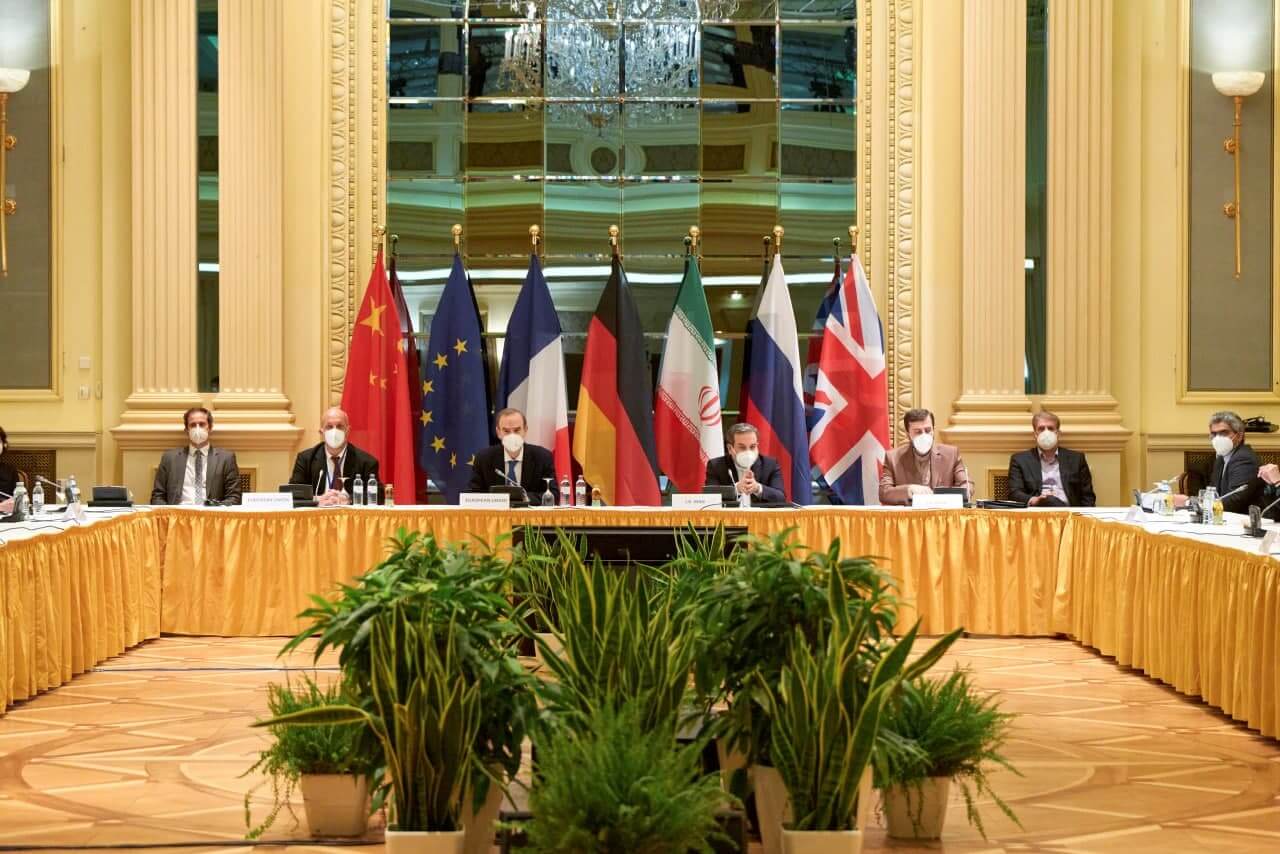On Thursday, the Biden administration expressed its willingness to lift some sanctions against Iran as talks continue in Vienna to revive the 2015 nuclear deal continue. A senior US State Department official said, “We made some progress, but we are not in a situation that is radically different from where we were at the conclusion of round one.”
The United States (US) also shared with Iran details of the sanctions it was willing to lift during the second round of talks in the Austrian capital. According to a report by the Wall Street Journal (WSJ), officials said the country is ready to ease sanctions against “Iran’s central bank, its national oil and tanker companies, and other sectors including aluminium and steel.” In a sign that talks were progressing in the expected direction, Iran, China, Russia, Germany, France, and the United Kingdom (UK) agreed to form a third expert group on discussing “practical steps” intended to restore the Joint Comprehensive Plan of Action (JCPOA).
The WSJ further reported that Iran has also asked the US to lift the “terrorist organisation” designation that it has currently placed on Iran’s Islamic Revolutionary Guard Corps (IRGC). However, sources told WSJ that US is not considering easing sanctions on the IRGC as of now.
Iranian Deputy Foreign Minister and head of Iran’s delegation at Vienna Syed Abbas Araqchi previously said that a “new understanding is being developed and there is now common ground among all [the sides] on the final goal.” In this regard, Araqchi also added that it was time to start drafting a text which will “serve as a basis for negotiations.” Araqchi’s sentiments were also expressed by Iranian President Hassan Rouhani on Tuesday when he said, “Talks have progressed around 60, 70 percent and if the Americans act within the framework of honesty, we will achieve results in a short time.”
The US State Department held a briefing with a senior official regarding the ongoing talks on Wednesday. The official said that “greater clarification” was achieved during the talks; however, he added that major disagreements still existed. He also said that Washington was “prepared to do everything” needed to get back in compliance with the JCPOA and hoped that “Iran will do the same.”
The landmark accord was signed in 2015 between Iran and the P5 + 1 (US, UK, France, Russia, China, and Germany) together with the European Union (EU). The deal, which extended sanctions relief to Tehran for significantly reducing its nuclear programme, seeks to prolong Iran’s “breakout capacity”, which is the time required by a country to produce enough highly enriched uranium for one nuclear weapon. However, the previous US administration led by Donald Trump decided to unilaterally withdraw from the JCPOA in 2018 and re-imposed punitive measures on Iran.
Iran reacted to the sanctions by drastically increasing its stockpile of enriched uranium and installing advanced enrichment infrastructure. Things were further complicated when Iran’s Natanz nuclear facility was sabotaged last week. Iran blamed Israel for the attack and called the incident “nuclear terrorism” and subsequently announced its decision to enrich uranium to the country’s highest-ever level so far at 60%.
Israel is firmly opposed to any deal with Iran, as it sees the Iranian nuclear programme as a threat to its existence. Israel has repeatedly been saying that it will not be bound by any deal reached between Iran and world powers. Regarding this, the US State Department official said that Washington and Tel Aviv have had numerous conversations about the talks. “We know that there is a disagreement with Israel’s perspective and we respect that. We will try to be as transparent as we can,” the official said.
Despite this, talks so far have proved to be productive as all sides in Vienna work to restore the JCPOA. In fact, the US official said that negotiations have been “business-like [and] productive” and added that the US hopes to reach an agreement with Iran soon.
Progress at Vienna Talks As US Willing to Lift Sanctions on Iran Central Bank
The US also shared with Iran details of the sanctions it was willing to lift during the second round of talks in the Austrian capital.
April 23, 2021

SOURCE: IRANIAN FOREIGN MINISTRY
